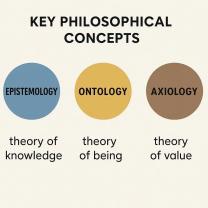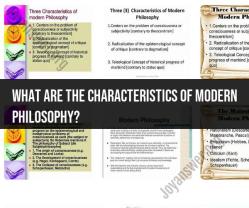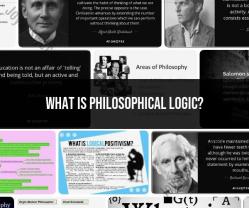What is meant by functionalism?
Functionalism is a theoretical perspective in sociology, psychology, and philosophy that seeks to understand the various parts of a system or society by examining how they contribute to the overall functioning and stability of that system. This concept emerged as a response to earlier theories that focused on the individual elements of a system without considering their interconnectedness and contribution to the whole.
Key Aspects of Functionalism:
Interconnected Parts: Functionalism emphasizes the interdependence of different parts within a system. It views society or any complex phenomenon as a collection of interconnected and interrelated components, each serving a specific purpose.
Function and Purpose: The core idea of functionalism is that each part of a system has a specific function or purpose that contributes to the overall operation and stability of the system. These functions can be both manifest (explicit and intended) and latent (hidden and unintended).
Equilibrium and Stability: Functionalism suggests that societies or systems tend to seek a state of equilibrium and stability. When all parts are functioning harmoniously, the system remains in balance. Any dysfunction or disturbance in one part can affect the entire system.
Social Integration: Functionalists argue that social integration and cohesion are vital for maintaining stability. Institutions, norms, and values contribute to social integration by regulating behavior and promoting shared values.
Analogies: Functionalism often uses analogies from the natural sciences, such as comparing society to a biological organism or the human body. Just as organs work together for the well-being of the body, different institutions in society collaborate for the collective good.
Emphasis on Order: Functionalists focus on the ways in which societies maintain order and function smoothly. They examine how institutions like family, education, religion, and government work together to promote stability and harmony.
Critiques and Limitations: Critics argue that functionalism may oversimplify complex social phenomena and downplay conflict and change. It has been criticized for its conservative nature, as it tends to reinforce existing social structures and norms.
Influence and Applications: Functionalism has been influential in various fields, including sociology, anthropology, psychology, and organizational theory. It has been used to analyze and understand social institutions, cultural practices, and even the functioning of individual minds.
Overall, functionalism offers a perspective that highlights the importance of understanding how different parts of a system work together to maintain stability and order. It has contributed valuable insights into the study of social structures, systems, and their functions, but it is important to consider its limitations and balance it with other theoretical approaches to gain a comprehensive understanding of complex phenomena.
Functionalism in Sociology:In sociology, functionalism emerged as a dominant theoretical approach during the early 20th century, particularly through the works of scholars like Emile Durkheim, Talcott Parsons, and Robert K. Merton.
Emile Durkheim: Durkheim is often regarded as one of the founders of functionalist sociology. He focused on the role of social institutions in maintaining social cohesion and preventing anomie (a state of normlessness). Durkheim's study of suicide, for example, examined how societal factors influence individual behavior.
Talcott Parsons: Parsons further developed functionalism, emphasizing the importance of social equilibrium and stability. He introduced the concept of "functional prerequisites," suggesting that societies develop structures to fulfill essential functions like adaptation, goal attainment, integration, and pattern maintenance.
Robert K. Merton: Merton extended functionalist theory by introducing the concepts of manifest and latent functions, as well as dysfunctions. He emphasized that not all functions of a social structure are beneficial, and some may even have unintended negative consequences.
Functionalism in Psychology:In psychology, functionalism originated as a response to structuralism and focused on understanding the purpose and function of mental processes and behaviors.
William James: Often referred to as the father of American psychology, William James is a key figure in functionalist psychology. He argued that the mind should be studied as a whole, considering how its elements contribute to conscious experience and adaptation to the environment.
John Dewey: Dewey extended functionalism to education and philosophy, emphasizing the practical and experiential aspects of learning. He believed that education should be relevant to real-life experiences and promote problem-solving skills.
Functionalism in Philosophy:In philosophy, functionalism addresses questions about the nature of mental states, consciousness, and the mind-body relationship.
Gilbert Ryle: Ryle introduced the concept of "category mistake" to critique Cartesian dualism, which separates the mind and body. He argued that mental processes are not separate entities but rather functions of the body's activities.
Jerry Fodor: Fodor's computational functionalism suggests that mental processes can be understood as information processing. He proposed that mental states can be explained in terms of their causal roles and interactions with other mental states.
Modern Views and Critiques:While functionalism has significantly contributed to various disciplines, modern scholars often incorporate functionalist ideas into broader frameworks that consider power dynamics, social conflict, and cultural diversity. Critics argue that functionalism may overlook issues of inequality, social change, and individual agency.
In conclusion, functionalism offers a valuable perspective for analyzing complex systems, whether in sociology, psychology, philosophy, or other fields. It underscores the interconnectedness and purpose of different elements within a system, shedding light on how they contribute to overall stability and functionality. However, its limitations remind us to consider multiple theoretical approaches to gain a comprehensive understanding of the complexities of human behavior, society, and the mind.












